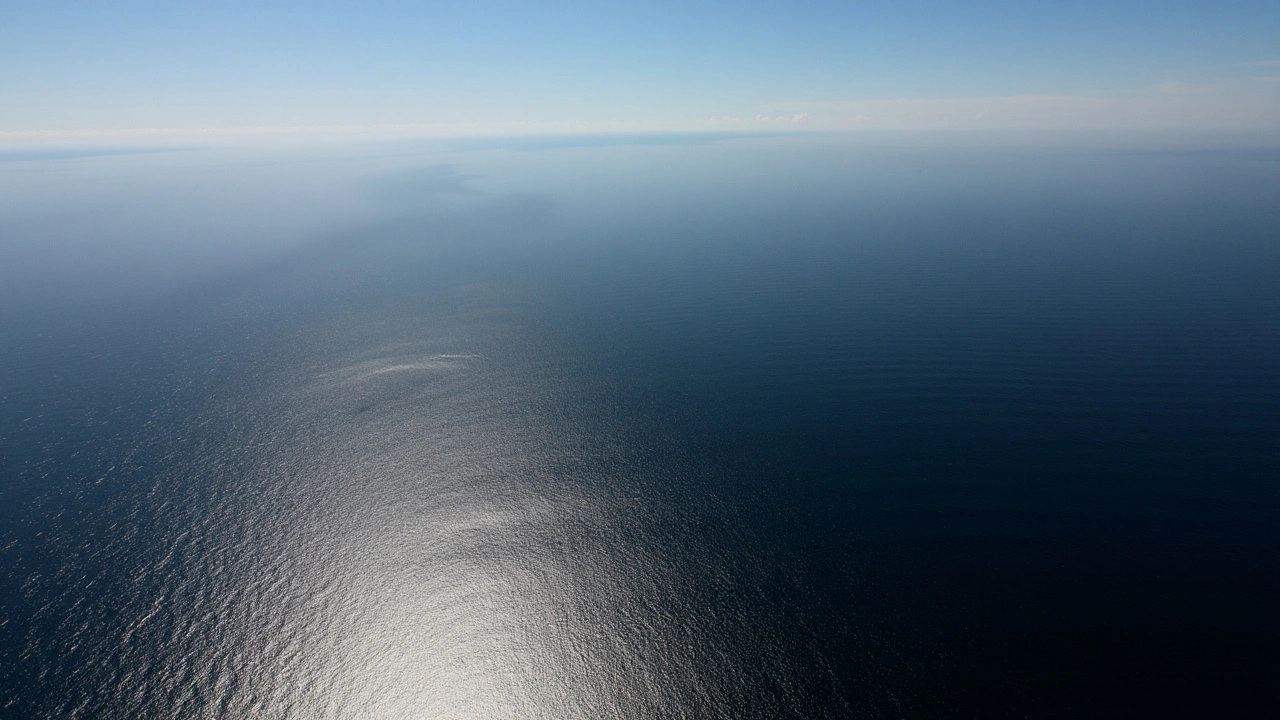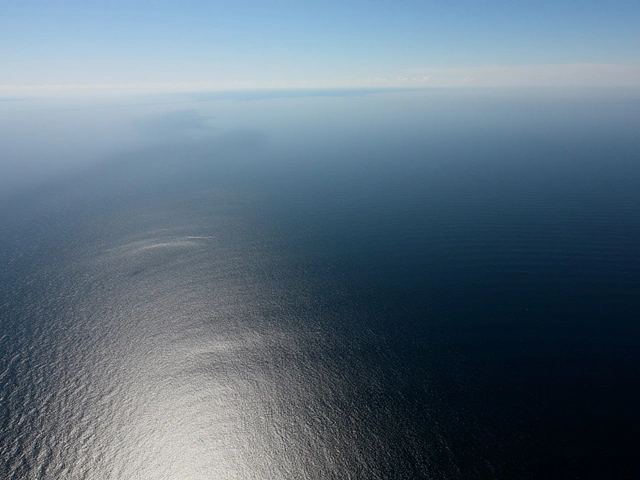Trump's Proposal to Rename the Gulf of Mexico
In a striking declaration, former President Donald Trump recently expressed his intent to rename the Gulf of Mexico as the 'Gulf of America.' This announcement was part of his inaugural address and indicative of his broader ambitions to reshape certain geopolitical landscapes. The proposal first emerged during a news conference earlier this year, resonating with Trump's longstanding discord with Mexico over issues ranging from border security to trade tariffs. His vision seems to underscore a desire to delineate an American-centric identity for the body of water that has historically been intertwined with Mexican culture and territory.
Historical Context of the Gulf Naming
The name 'Gulf of Mexico' has been entrenched in history for over four centuries, its origins tracing back to a Native American city called 'Mexico.' The gulf itself has long been a geographical and cultural bridge between the two nations, with both Americans and Mexicans holding deep connections to its waters. Mexicans refer to it as 'El Golfo de México,' while a similar divide exists with the river known as the Rio Grande in the U.S. and Rio Bravo in Mexico. Historically, attempts to rename such significant bodies of water rarely come to fruition, given the cultural heritage and international agreements involved. For instance, a 2012 legislative proposal from Mississippi aimed to rename its adjacent waters to 'Gulf of America' but met with ridicule and dismissal.
Renaming Process and International Regulations
While ambitious, Trump's intention to rename the Gulf of Mexico is fraught with complexities. Such decisions are not made unilaterally but rather require cooperation and approval from international bodies like the International Hydrographic Organization (IHO). The IHO ensures uniform naming and charting of the world's seas and navigable waters, emphasizing adherence to internationally recognized names. This body offers a platform for countries to negotiate and historically resolve disputes over naming conventions. There are numerous instances globally where countries use distinct names for shared geographies, but legal recognition often adheres to a consensual international standard.
Geopolitical Undertones of Trump's Renaming Endeavor
Trump's proposal is emblematic of his broader agenda to remap the Western Hemisphere. Other controversial ideas have included viewing Canada as an unofficial '51st state' and pressing for the acquisition or influence over Greenland from Denmark. Additionally, Trump has expressed frustration with the status of the Panama Canal, lamenting unequal treatment and critiquing China's management of operations as a perceived treaty violation. Such propositions underscore a recurring theme in Trump's political strategy: redefining borders to assert U.S. dominance or influence.
Legal and Political Challenges
The renaming proposition for the Gulf of Mexico is likely to encounter substantial legal and political hurdles. Historical precedence, international treaties, and national sovereignty all present formidable challenges to such a bold move. Legislative support, particularly from figures like Rep. Marjorie Taylor Greene, indicates there's backing within some political avenues to pursue these changes. Her declaration to draft legislation shows an effort to cover logistical aspects like updating maps and official materials across multiple federal agencies. Nevertheless, practical implementation remains uncertain in light of expected opposition from domestic and international stakeholders.
Cultural and Environmental Significance
Beyond political theatrics, the Gulf of Mexico holds profound cultural and environmental significance. It is a critical ecosystem supporting diverse biological life, essential fisheries, and vital economic activities. Any potential renaming might also bring attention to existing environmental issues, such as pollution and oil spills, which have previously plagued the region. Notably, names carry more than just political weight; they encapsulate historical and environmental narratives, guiding how communities interact with their natural surroundings.
Conclusion and Future Implications
Trump's proposition to rename the Gulf of Mexico reflects a broader pattern of rebranding attempts aimed at reasserting a U.S.-centric perspective within global geopolitics. While the intent might align with certain political narratives, achieving this goal is steeped in contention. As historical and regulatory frameworks converge to guard against unilateral changes, orchestrating a new nomenclature for such a prominent and shared body of water will require deft diplomatic negotiation and broad consensus. The outcome of this proposal could have far-reaching implications on international relations, political dynamics, and the understanding of shared cultural geographies.




Comments
Trump wants to rename the Gulf of Mexico to the "Gulf of America" – what a bold power play! 🇺🇸💥
It sounds like a political stunt rather than a serious geographic change.
Listen up, folks! The International Hydrographic Organization would have to sign off on any name change, and that’s not something you can just decree from a podium, especially when there are treaties, conventions, and a whole diplomatic process that must be respected, otherwise you’re just waving a flag and shouting into the void!
Whoa! Imagine maps being redrawn, textbooks rewritten, and sailors confused-this is straight out of a thriller novel, not a policy paper!
The proposal raises several legal questions: first, does a U.S. president have unilateral authority to rename an internationally recognized body of water? Second, how would such a change align with existing bilateral agreements between the United States and Mexico? Third, what precedent would this set for other contested geographic names worldwide? While political rhetoric can be influential, the practical implementation relies on multilateral cooperation and adherence to established naming conventions upheld by entities like the IHO. A unilateral move would likely be dismissed by the international community, leading to diplomatic friction and potential retaliatory measures. Therefore, any realistic attempt would require congressional support, diplomatic negotiations, and perhaps a treaty amendment.
Indeed, engaging legislators early and building a bipartisan coalition could smooth the path, but the odds remain slim given the broader geopolitical implications.
Even if the name change were symbolic, it could still spark public debate about national identity and regional cooperation, which might be valuable in itself.
Yo, ths is like ttrying 2 rebrand a whole ocean w/ a new label – kinda wild, lol.
The idea is absurd and reeks of nationalist posturing; it's a cheap gimmick that undermines serious diplomatic relations.
From a geopolitical semantics perspective, unilateral toponymic revisionism lacks legitimacy under the United Nations Convention on the Law of the Sea.
Sounds like a publicity stunt 😂
Well, if it gets people talking we might see more focus on protecting the Gulf’s environment 🌊
When we consider the cultural heritage embedded within geographic nomenclature, we must acknowledge that names serve as vessels of collective memory, linking generations through shared narratives that transcend political borders. The Gulf of Mexico, for instance, has been a cradle of maritime trade, ecological diversity, and artistic inspiration for both nations, fostering a sense of place that cannot be merely overwritten by a decree. Renaming it without inclusive dialogue risks erasing layers of identity and disregarding the lived experiences of coastal communities whose livelihoods depend on the waters they have called by a familiar name for centuries. Moreover, the process of rebranding would entail extensive logistical challenges, from updating nautical charts to revising educational curricula, imposing significant economic costs. In the broader context of international relations, such unilateral actions may be perceived as cultural imperialism, potentially inflaming nationalist sentiments on both sides of the border. Consequently, any discussion about renaming should be rooted in mutual respect, scholarly research, and collaborative decision‑making that honors the Gulf’s multifaceted legacy.
While the sentiment is noble, one must also recognize that political leaders sometimes employ symbolic gestures to galvanize domestic support, even if the practicality is questionable.
The IHO’s classification system is based on scientific consensus, so any alteration would require rigorous justification and peer‑reviewed evidence.
yeah but politics always finds a way
Don't be fooled-this is just the next step in a grand scheme to rewrite history and consolidate power, a move orchestrated behind closed doors by shadowy elites.
Analyzing the narrative through a critical discourse lens reveals how such proposals can serve as rhetorical devices to reframe national sovereignty in a post‑globalization paradigm.
Perhaps this debate will ultimately lead to stronger bilateral environmental initiatives, benefiting both nations in the long run.
It is indeed a paradox that a seemingly superficial act of renaming can ignite profound reflections on the interconnectedness of ecosystems, economies, and cultures across borders. First, the Gulf’s marine biodiversity is a shared asset, supporting fisheries that feed millions on both sides of the line; any policy shift must therefore consider cross‑national resource management frameworks. Second, historical ties between the United States and Mexico are woven into the very fabric of the region’s identity, from indigenous trade routes to contemporary scientific collaborations. Third, the geopolitical symbolism embedded in a name carries weight far beyond cartographic convenience, influencing everything from diplomatic discourse to tourism branding. Fourth, the prospect of unilateral rebranding risks alienating local stakeholders, whose sense of place is anchored in the familiar nomenclature passed down through generations. Fifth, the legal apparatus governing international waters is codified in treaties such as the United Nations Convention on the Law of the Sea, which emphasizes consensus and transparency. Sixth, the proposed “Gulf of America” could inadvertently marginalize the cultural narratives of Mexican coastal communities, fostering resentment and resistance. Seventh, environmental advocacy groups have long warned that attention should be directed toward combating pollution, habitat loss, and climate change impacts rather than symbolic gestures. Eighth, education systems would need to overhaul curricula, maps, and textbooks, incurring substantial costs and logistical challenges. Ninth, media coverage of such a rename could distract from pressing issues like oil spill mitigation and sustainable fisheries management. Tenth, should the name change proceed without bilateral agreement, it could set a precedent for future territorial rebranding disputes worldwide. Eleventh, the diplomatic fallout may strain trade negotiations, affecting sectors far removed from maritime affairs. Twelfth, the public’s perception of governmental priorities could shift, eroding trust if actions appear performative. Thirteenth, a collaborative approach that involves both nations in a joint naming committee would honor shared stewardship while respecting each country’s heritage. Fourteenth, ultimately, the true measure of progress lies not in a new label but in tangible commitments to protect and preserve the Gulf for future generations.